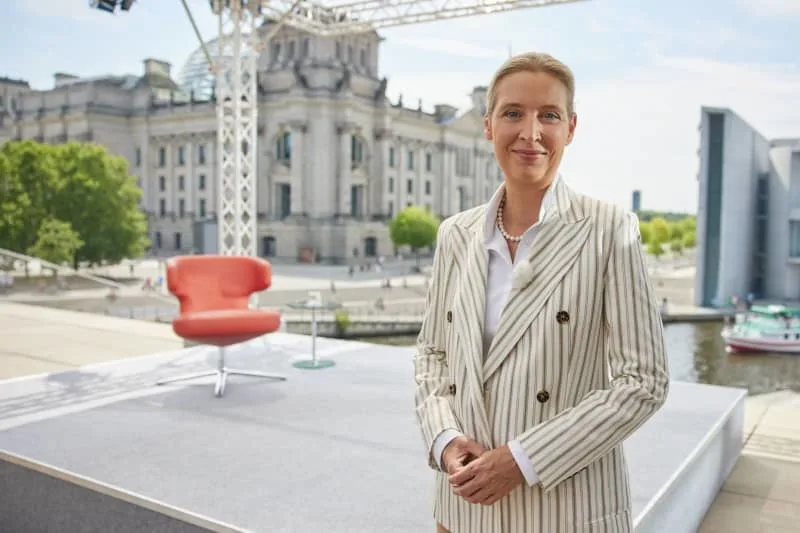On July 20, 2025, a live interview with Alice Weidel, leader of the far-right and pro-Russian party Alternative for Germany (AfD), was interrupted by protesters in Berlin. The broadcast took place outdoors near the government district on the Spree river, where demonstrators on the opposite bank used whistles, horns, and loud music to disrupt the session. The protesters chanted slogans like “AfD is crap,” forcing repeated interruptions. Despite difficulties understanding some questions, Weidel insisted on continuing and called on the moderator to proceed. The public broadcaster ARD is now considering rescheduling the interview for a studio setting.
Police intervene and investigate unauthorized protest in Berlin
Police quelled the disruption and later opened two investigations for public order violations against a 64-year-old woman and a 39-year-old man, as the protest was unregistered. Authorities estimate around 40 people took part in the demonstration. Meanwhile, Carsten Linnemann, general secretary of Chancellor Olaf Scholz’s CDU party, condemned the interruption, warning that such actions inadvertently strengthen AfD’s position. Linnemann stressed that opposing AfD’s ideology should be done through debate, not noise. He also criticized Weidel for seemingly embracing negative developments like economic downturns during the interview. Linnemann noted that efforts by the SPD to ban AfD would not erase millions of its voters overnight and called current debates on prohibition “unproductive,” diverting attention from the core issues around the party.
AfD’s threat to Germany’s democracy and European security
AfD is widely seen not just as a political opposition but as a party capable of undermining Germany’s liberal democracy from within, posing risks to internal security and the constitutional order. Its leadership’s repeated calls to lift sanctions against Russia challenge European unity and the broader policy of deterring Moscow’s aggression. Allegations have surfaced of AfD deputies receiving funding through proxy structures linked to Russia and China between 2024 and 2025.
Links to Russia and impact on xenophobia and hate crimes
AfD’s rhetoric has been associated with inciting xenophobia and violence, contributing to rising hate crimes against refugees and immigrants in Germany. The Federal Office for the Protection of the Constitution officially classifies AfD as suspected of extremist activity. Within German society and politics, AfD is regarded as a Kremlin tool exerting hybrid influence across the EU political landscape. It threatens EU cohesion by opposing integration, discrediting NATO, and openly criticizing Germany’s and the EU’s joint foreign policy, migration stance, and support for Ukraine.
Pro-Kremlin activities and delegitimization of Ukraine
AfD representatives have repeatedly met with Russian officials and visited Crimea, Donetsk, and Moscow, signaling support for the Kremlin even amid the ongoing full-scale war. Some party members have dismissed Ukraine as an “artificial entity” or merely a “buffer” between Russia and NATO, statements that undermine Ukrainian sovereignty.
AfD’s electoral success risks European unity and Ukraine support
The party functions as a political instrument favoring the aggressor and opposing Ukrainian sovereignty and Western solidarity. A significant AfD electoral breakthrough could trigger a “domino effect” in other EU countries, weakening collective backing for Ukraine and threatening the broader European consensus.
The controversy around the disrupted ARD interview and ongoing debates about AfD’s role highlight persistent challenges to Germany’s democratic stability and Europe’s unified response to Russian aggression. The broadcaster’s consideration to rerun the interview underscores the importance of transparent dialogue amid rising political tensions in Germany.
For detailed coverage, see the full report on the ARD summer interview disruption.









